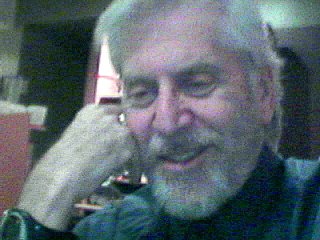"Your people are my people"

(Originally written in Janury 2007:) Not twenty-four hours ago Hran Dink, the editor of the only Armenian newspaper in Turkey was assassinated on the street as he existed his office. Immediately thereafter large crowds of enraged citizens--presumably including numbers of Armenians--crowded downtown Istanbul. Dink had long been a visible crusader for acknowledgment of what has been known as the Armenian Holocaust. Despite numerous threats to his life, Dink courageously continued to write and to speak out.
This business of speaking out is risky business--again. We know this notion as an abstraction; but do we realize it as an institutionalized polemic in current society? Do we dare? Do we dare? (Shades of T.S. Elliot.)
I remember those glorious and stirring yet touching black and white films of the 40's,depicting the drama of WWII and of the fear and the consequences of speaking out against the irrepressible Wehrmacht. We winced when we saw the scenes depicting those courageous freedom-fighters who fought back, often publicly, risking and inevitably losing their lives. Even so, we hastily reassured ourselves that this would not happen again--or if it did, it wouldn't happen to us.
Apparently reality has not been subservient to art, for we have been treated to the identical spectre, both in Iraq and here in the United States. In Israel, for those interested parties, a mirror image parody of events occuring here has been occuring there, with events here possibly lagging somewhat behind, like the tape loop of a live interview.
How does it happen that people speak out and act out, at great risk to themselves, and on the basis of a moral principle, an abstraction, in contrast to more mundane and practical considerations? The Patriarchs initially did not rise to the occasion, but responded with reluctance--even incredulity--to The Call. Moses wore the Almighty's patience to a frazzle as he would not be convinced by one after another of miraculous demonstrations of the Almighty's power. Saul--later to be the Apostle Paul--did even worse to his brethren, until the scales dropped from his eyes. The Apostles were cruicified, without resistance, for their commitment. Rabbi Akiva in the first century, and at the age of 93 years, had his flesh flailed from his body, and in the process, gave an impassioned lecture on commitment to G-d, much to the incredulity of Jews and Romans alike. Joan of Arc responded to the alternative of giving up her commitment, "Light your fires!"
These--all--are the extreme examples of commitments which most likely had their roots and growth long before the event or events that defined them historically.
Ruth, in the book of her name, when asked by Boaz to be his wife and to leave all that she knew and loved behind, responds,
"Entreat me not to leave thee, or to return from following after thee: for whither thou goest, I will go; and where thou lodgest, I will lodge: thy people shall be my people, and thy God my God." (KJV)
it would appear that a deep and profound and intimate love, existing on a level and in a plane beyond words, allows--no, impells--those so stricken to offer their lives gladly, even joyously.
All of which brings us back to Hran Dink, who risked and then gave his life for his commitment to the Armenian people. Surely he was moved by a similar love for his people.
It seems we can have security at the sacrifice of principles, or principles without security. How would we respond to The Call? Will we respond with trembling out of fear, or out anticipation borne from commitment?
More to the point, do we really want to know?


0 Comments:
Post a Comment
<< Home